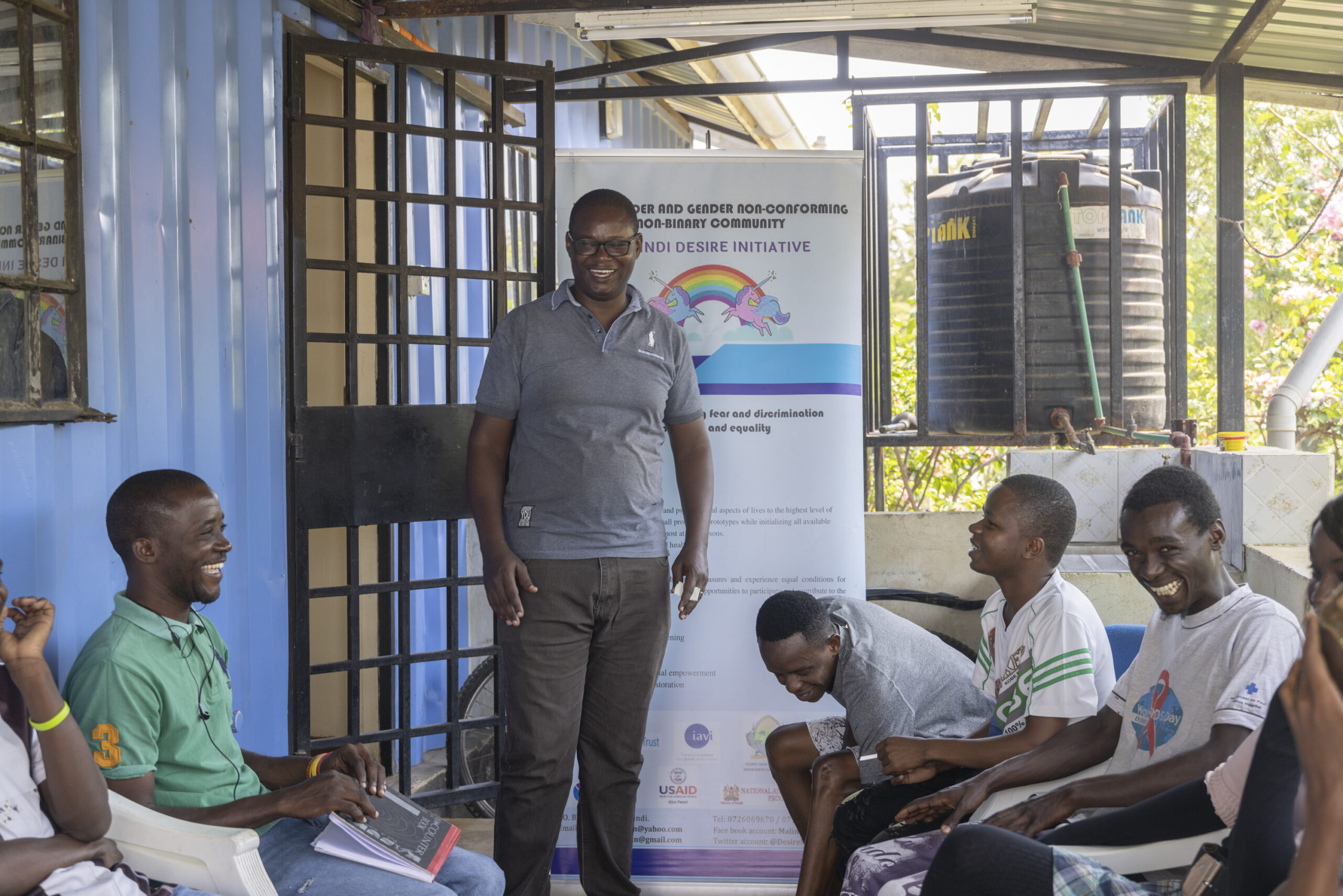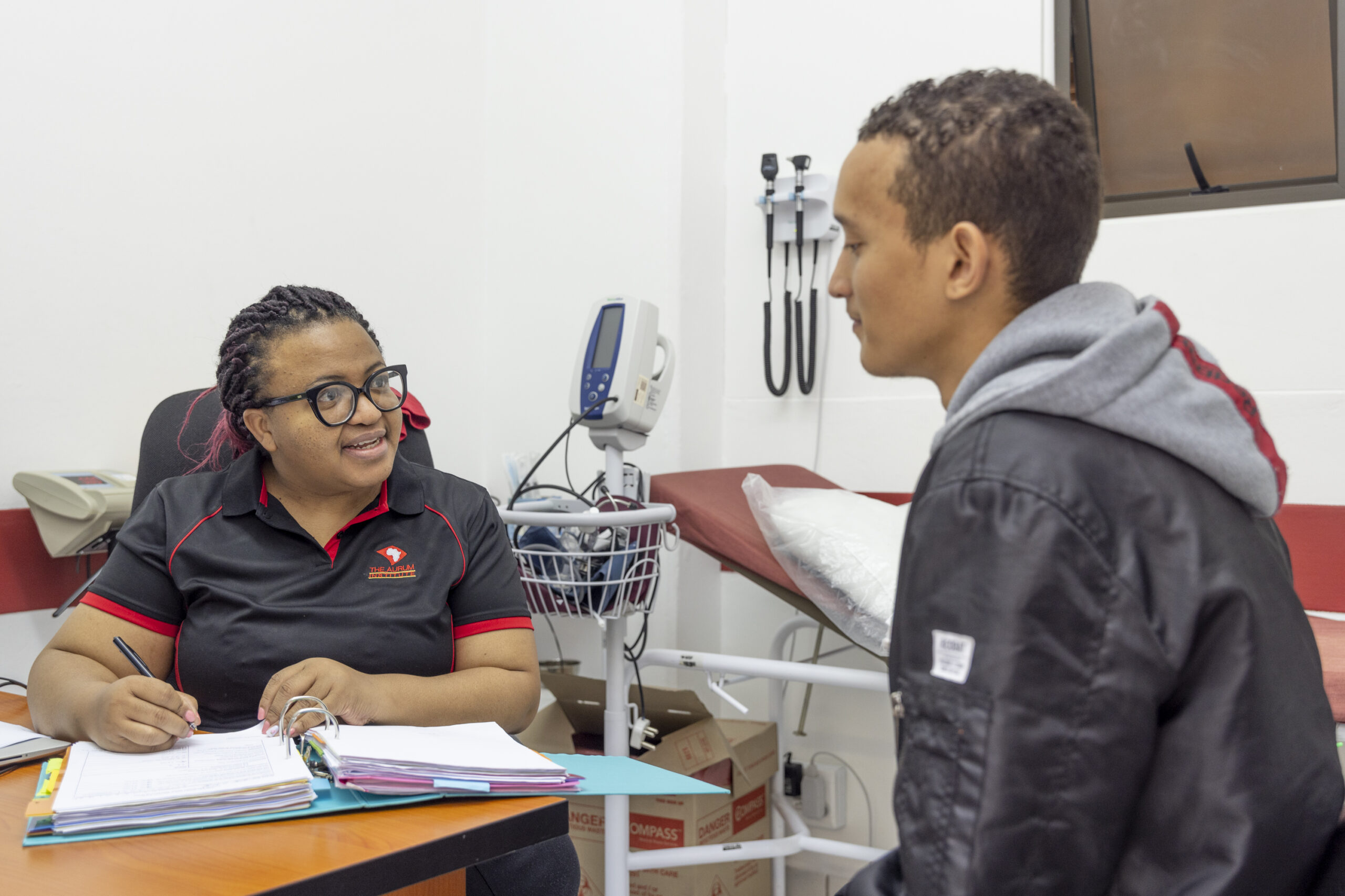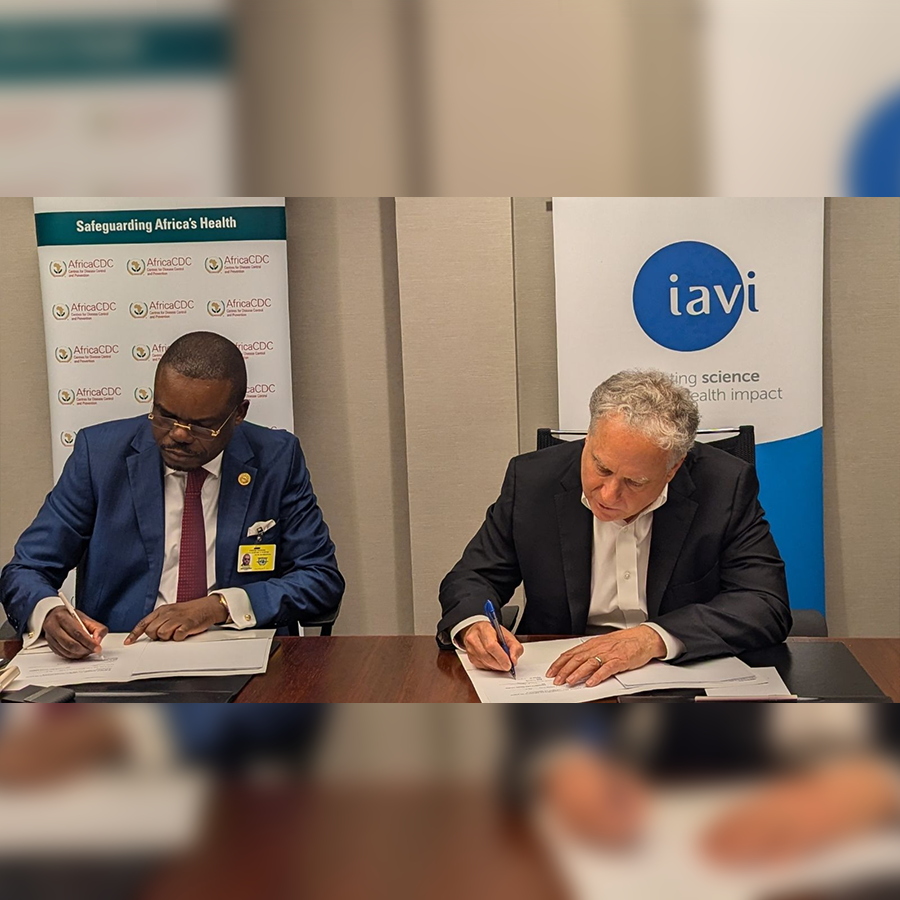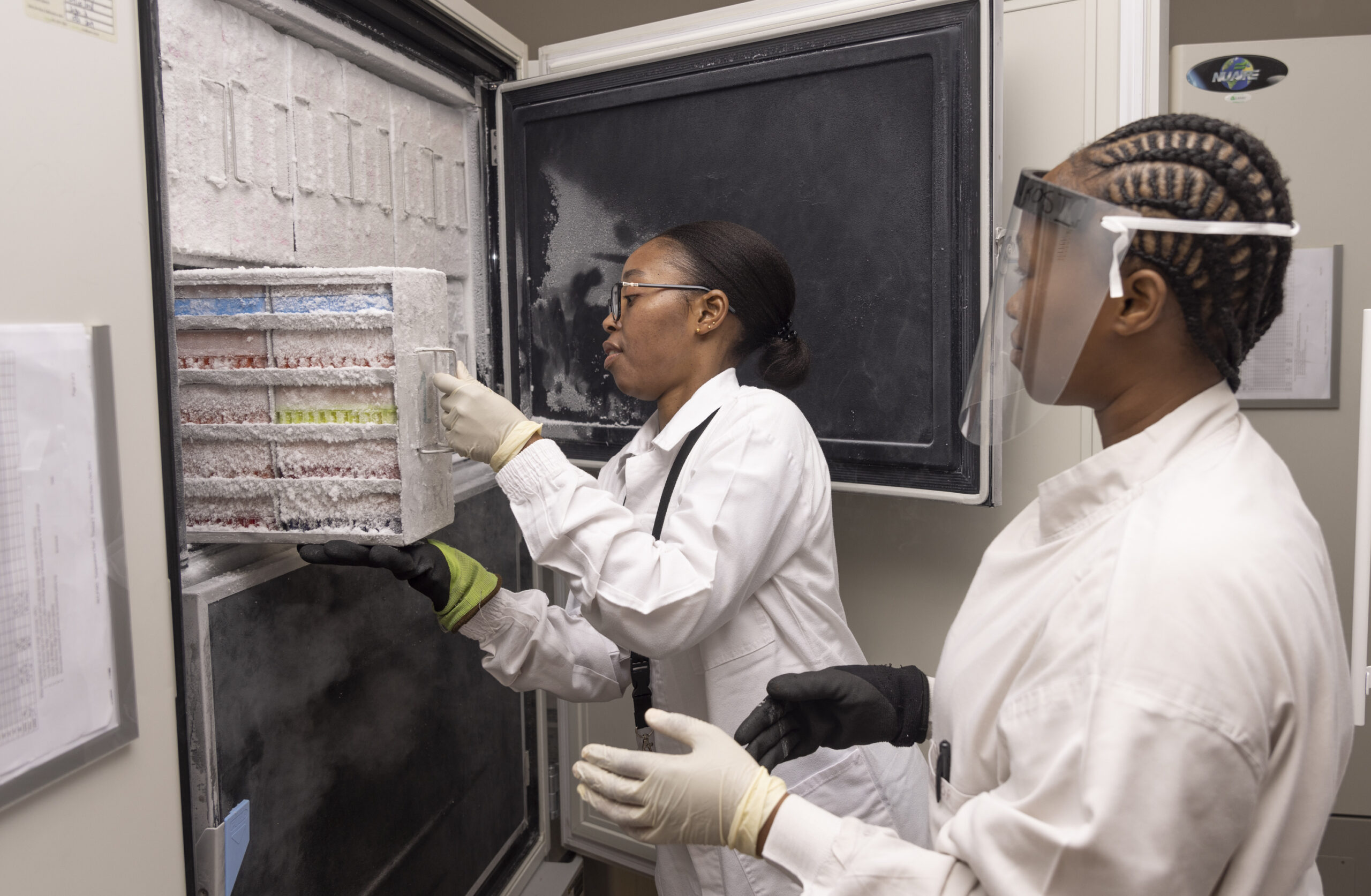We partner with scientific leaders in Africa for relevant and sustainable vaccine discovery and development
Today, African researchers stand as peers alongside top global experts in HIV vaccine research and development. Together, we can accelerate breakthroughs that can lead to a globally accessible and effective HIV vaccine and other biomedical innovations.
IAVI Africa brings together a diverse team with extensive expertise across clinical development, regulatory affairs, pharmacovigilance, clinical and lab operations, epidemiology, community engagement, biostatistics and data management, access, advocacy and policy, communications, and quality assurance (QA) as well as upstream expertise in vaccine design and discovery and preclinical studies.
In collaboration with clinical research center partners across Africa, we focus on locally relevant research toward the development of vaccines and biomedical interventions for HIV, tuberculosis, neglected and emerging infectious diseases, and antimicrobial resistance. IAVI Africa engages with communities and policymakers to promote policies bridging research to practice. Our core teams and hubs in Kenya and South Africa complement IAVI’s global outreach spanning Europe, India, and the U.S.
At a glance
years in Africa
clinical research center partners
countries in Africa where we work, spanning Eastern, Western, & Southern Africa
specialists in Africa, with a broad spectrum of expertise
We have over two decades of experience in conducting research and partnering in Africa
IAVI Africa, formerly IAVI Africa Program, began in 1999 to conduct HIV vaccine clinical trials and epidemiology studies through the partner clinical research center network, always upholding the highest technical and ethical standards. The program also strengthened laboratory capabilities for clinical trials and research, while community engagement, advocacy, and policy initiatives remained central to promoting vaccine research. A key component of this work has always been partnering with African researchers to cultivate local scientific expertise and address research challenges. Today, this collaboration is known as IAVI Africa.

We conduct vaccine research tailored to local communities
IAVI Africa has championed a community engagement model that has enabled us to access and retain hard-to-reach communities in clinical trials. In addition, epidemiology studies in Africa reshaped how we understand HIV pathogenesis, with key discoveries now fueling clinical trials of HIV interventions in Africa. These trials are led by African scientists and focus on the safety and effectiveness of interventions for African populations.

We partner to turn science into action
Our robust partnerships with research regulators, policymakers, governments, scientists, activists, civil society organizations, influencers, and communities at national and international fronts help us fulfill our mission to translate scientific research into concrete action. Through proactive advocacy, policy, and public engagement initiatives, we lay the groundwork for impactful research outcomes through activities such as:
- Ensuring decision-makers have the information and evidence to make informed choices about supporting global health solutions.
- Developing guidelines for delivering prevention and treatment services in vulnerable communities.
- Championing the fulfillment of national commitments to increase domestic support for strengthening research.
- Contributing to efforts to harmonize regional research regulatory processes.

Advancing vaccine development, manufacturing, and access in Africa
We have forged unique, high-impact partnerships to strengthen Africa’s capacity to develop, produce, and deliver vaccines and antibodies for priority health challenges through collaborations with the Africa Centres for Disease Control and Prevention (Africa CDC) and Institut Pasteur de Dakar (IPD).
With IPD, we are working to research, develop, manufacture, and commercialize novel vaccine candidates for both endemic and emerging infectious diseases using a shared vaccine production platform. This partnership aligns with Africa CDC’s New Public Health Order and the continent’s ambition to produce 60% of its vaccine needs by 2040. We aim to lay the foundation for end-to-end vaccine development on the continent—from research and clinical development to regulatory science and equitable access.
Complementing this, our partnership with Africa CDC focuses on expanding Africa’s research and development ecosystem, pandemic preparedness, and supply chain resilience. Key areas include advancing vaccines and antibodies for regional health priorities like HIV and Lassa fever, bolstering manufacturing capacity, and strengthening stockpile strategies for rapid outbreak response.
We strengthen local capacity and promote sustainability and self-sufficiency
IAVI Africa strengthens clinical capacity in Africa and promotes impactful and respectful global research partnerships, in line with Africa’s health security Agenda. This agenda aims to strengthen public health self-sufficiency, address global imbalances, and enhance Africa’s readiness and response to disease threats.
Recent capacity strengthening efforts have included:
- Funding research for career development by junior and middle-level scientists.
- Funding advanced degree pursuits for partner clinical research center staff.
- Writing and mentorship programs, such as a fellowship for research among adolescents.
- Leadership Development Program, which positions African scientists at the forefront of research direction.
- Transferring crucial technical skills to labs in Eastern, Western, and Southern Africa, including genome sequencing and flow cytometry.

Collaborate with us
At IAVI Africa, collaboration is at the heart of what we do. Whether you’re exploring cutting-edge research and discovery for existing or emerging disease areas or translating research to policy and practice, we’re here and ready to connect. Become our next partner in propelling scientific endeavors that drive transformative change in global health.
Reach outRead these IAVI co-authored policy publications
- National Guidance on Integrating Mental Health (2022)
- Factors which Contribute to or Inhibit Women in Science, Technology, Engineering, and Mathematics in Africa (2020)
- Health Research and Innovation Strategy for Africa (2019)
- The Path towards Harmonization of Ethics Review Frameworks in East Africa: Policy Brief (2018)
Check out the latest news
- IAVI and partners kick-start CELEBRATE study to explore acceptability and feasibility of bnAbs for infant HIV prevention
- IAVI and WomenLift Health announce partnership to promote women’s leadership in global health
- Championing domestic financing to promote a vibrant vaccine research and development enterprise in Africa